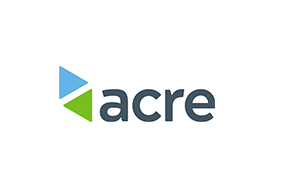What Is the Purpose of Stewardship?
Published 07-14-20
Submitted by Acre

Originally published in "How Can Successful Stewardship Be Meaningfully Reported?" by Acre
REGULATORY CONTEXT
The FRC published the UK Stewardship Code 20202 in October 2019. It includes a revised definition of stewardship:
Stewardship is the responsible allocation, management and oversight of capital to create long-term value for clients and beneficiaries, leading to sustainable benefits for the economy, the environment and society.
This is an expansive definition. The previous definition talked about risk-adjusted returns and ensuring benefit to clients and beneficiaries. This new definition recognises the role that sustainable and responsible investment plays in our economy and society. To a certain extent, this is a mirror of the Corporate Governance Code’s references to environmental and social as well as governance matters (section 172 of the Companies Act 2006) which benefit wider society.
IT BRINGS INTO PLAY SOME CHANGES THAT HAVE TAKEN PLACE:
- An increasing demand among clients and beneficiaries for environmental and social factors to be brought into play when considering investment.
- Broadening the asset classes to which stewardship is applied; until now the focus has largely been on public equity investments.
This is an all-encompassing definition of stewardship, which reflects how that should be reported. Not just talking about the twelve principles of stewardship, but the activities and outcomes surrounding it.
Through its regulation and working alongside the FRC, the FCA aims to ensure that firms are delivering good outcomes for their customers. For many firms, stewardship will be integral to this.
Stewardship is also central to the design and effectiveness of capital markets, helping to improve market quality and integrity. This is how stewardship plays a role in ensuring the creation of sustainable long-term value for clients and beneficiaries.
Effective stewardship therefore supports the FCA’s objective to make relevant markets function well. There is increasing appreciation for the role that stewardship can play in creating a long-term perspective, and through constructive oversight, helping to advance sustainability goals.
1.1 - QUESTION:
Who is responsible for stewardship and how does that fit into the investment chain? Do we conceptualise this as a shared responsibility?
Regulatory View Point
- The effectiveness of stewardship is reliant on mutually supportive arrangements such as asset owners, asset managers, investment consultants and service providers working together towards a common goal.
- There is individual and collective responsibility for stewardship. Each individual firm should be making appropriate investments in their stewardship capabilities and owning that. However, ultimately those investments will only reap rewards on the lines of the definition in the Code if there is alignment in objectives, and if all relevant parties across the institutional investment community come together to make stewardship happen.
- The way the Code2 is drafted means the different players – the asset managers, asset owners, the consultants, the proxy advisors, et cetera – are all able to sign up to the Code, committing themselves to the general principles of stewardship, and to the specific elements of the Code that are aimed at them.
1.2 - QUESTION:
If the investment chain can be aligned to have individual and collective responsibility, who is account- able for stewardship being sufficient and effective? Who polices that, and who is accountable for that?
Investment Consultancy Viewpoint
- Collectively positive things are said and intended, although at the micro level there is often quite strong tension on different views about a technical point for example, and that creates treacle in the system. This is why having detailed guidance and coding that everyone in the chain can reference is necessary. It creates the essential basis for success, but neither should it represent the limit of stewardship intention. Getting the right balance of principles and rules is key.
Regulatory Viewpoint
- Everyone has accountability. A driver of accountability is the FRC deciding who can be a signatory of the Code on the basis of the quality of their reporting, in particular the evidence they provide on the activities and outcome of stewardship. If that doesn’t prove sufficient, the question arises: what other regulatory triggers do there need to be in the system?
- Clients and customers have choices to make; if they do not judge that they have the evidence that stewardship is being done effectively, then they will make their choices accordingly.
Asset Manager Viewpoint
- As part of the investment chain, companies play a very important role in stewardship. Companies are also responsible for allocating capital. Investors, especially asset managers, engage with companies to ensure the companies allocate capital properly. I believe that the concept of stewardship needs to put more emphasis on the company management.
Asset Owner Viewpoint
- Asset Owner Viewpoint Many asset owners rely on their asset managers to carry out effective stewardship and engagement on their behalf. It is incumbent on those asset owners to properly hold those asset managers to account for the exercise of those responsibilities.
Read more in the whitepaper here

Acre
Acre
About Acre
At Acre, we work with the most aspirational businesses with potential to make real change; from those who are just starting out to those who are well on the journey to crafting a legacy.
Our 18 years' experience in sustainability recruitment, combined with our extensive global network, enables us to provide talent solutions that are designed to deliver this change.
Through our unique behavioural assessment technology, we understand the types of people, skills and behaviours required to create impact. We can develop these qualities within your existing teams too.
We find talented people and develop their skills to ensure they make a true impact in ambitious, progressive organisations.
Acre. Making companies ready for tomorrow.
More from Acre

